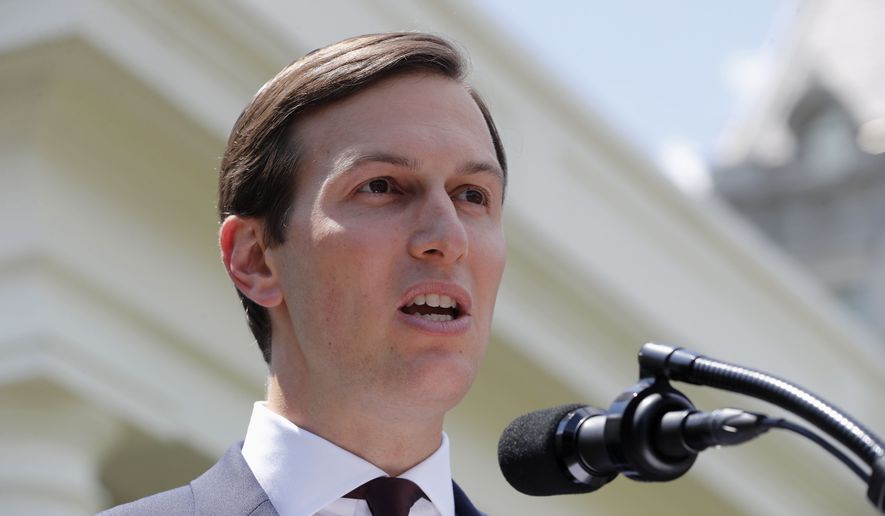Washington- The White House announced on Friday that President Donald Trump is sending three of his aides to the Middle East to revive the Palestinian-Israeli peace process in a step that renews the US direct engagement in this file.
In a statement, the White House said Trump “believes that the restoration of calm and the stabilized situation in Jerusalem after the recent crisis on the Temple Mount-Haram al Sharif has created an opportunity to continue discussions and the pursuit of peace that began early in his administration.”
The White House also said the visit of the aides to the Middle East is based on Trump’s “various meetings” with top administration officials, including Secretary of State Rex Tillerson, White House chief of staff John Kelly and national security adviser H.R. McMaster.
Based on those meetings, Trump’s son-in-law and senior adviser, Jared Kushner, special representative for international negotiations, Jason Greenblatt and deputy national security adviser Dina Powell will travel to the region in the coming days, the White House said.
The trip aims “to continue discussions with regional partners about how best to support the peace effort.”
The White House also said the three aides are to meet leaders from Saudi Arabia, the UAE, Qatar, Jordan, Egypt, Israel and the Palestinian Authority about how best to support the peace effort.
Trump also requested that the upcoming trip focuses on topics such as the path to substantive Israeli-Palestinian peace talks, the economic steps that can be taken both now and after a peace deal is signed to ensure security, stability and prosperity for the region, and to combating extremism and easing the humanitarian crisis in Gaza.
Last month, Israeli forces closed Al-Aqsa Mosque to worshipers after a deadly shooting at the holy mosque’s compound in the occupied East Jerusalem al-Quds.
Israel then partly reopened gates of the mosque but placed strict security measures at the entrances of the compound, including metal detectors to search worshipers.
The step created strong disputes and a war over “the sovereignty of the mosque,” leading to further confrontations between the two sides and leaving injuries in the ranks of Palestinians.
